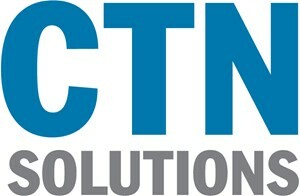Privacy is a sensitive subject nowadays, especially online. Regardless of the browser you have elected to use, properly using it will have a large impact. Let’s review a few ways that you and your team can help secure your business and its resources and go over these settings.
Promoting Privacy Via Your Browser Settings
Here, we’ve assembled a few best practices that you should keep in mind to help reinforce your browser’s security.
Revise Default Permissions, as Necessary
Before a website is able to access some of your data and peripherals, like your location, your camera, and pop-up windows, it needs to ask you for permission to do so. Too many people set these permissions to on—carte blanche—by default, potentially opening themselves to various attacks and threats.
For instance, by accessing the camera and microphone without informing the user, a cybercriminal could invite themselves to a peek into your personal life, listening and watching for personal moments and data to exploit. Pop-up windows could themselves host threats, and automated downloads could install nasty pieces of malware.
Instead, you should make sure that these permissions are set to Ask before allowing them, while also simply turning these permissions Off when you have no reason to enable them.
Block Third-Party Cookies and Trackers
While websites will often use their own cookies to keep track of users to improve their functionality, there are a lot of other cookies present from third parties that are tracking you as well. By blocking cookies that don’t come from the site you’re browsing, and leaving the native ones to operate, you can minimize threats against your business from these sources.
As for trackers, you should be able to switch them off entirely. Trackers have begun to replace cookies as a means of, well, tracking a user’s online behaviors. As a plus, blocking a tracker has a decreased probability of breaking a website, as blocking cookies can at times do. If you cannot block trackers via your browser, you may want to reconsider which browser you are using.
Use Smarter Tools and Utilities to Minimize Your Risks
While different browsers offer different security features, there are certain choices that can help you make the most out of any situation. For instance, you should not sign into any of your accounts on more than one browser. If you’ve decided on Firefox for your Facebook use, only sign into Facebook from Firefox and not from Google Chrome or Microsoft Edge. While you may have disparate Google accounts attached to these services (a company one for work and a personal one for your own use), Google understands that they are all you and will take it upon themselves to merge your activities into their own reference files. You should also avoid using your accounts from Google or Facebook as a form of sign-in, as this will give those companies access to your behaviors on those sites as well.
There are, however, some browser extensions and alternative websites that can help you take back some of your privacy. Some add-ons help to shield your activities from this kind of tracking, while some online services are anonymized and therefore more secure. Identifying the most secure options and committing to them will be crucial to your continued success.
The Internet can be a wonderful resource, but it can also be considerably risky to work with if not prepared. Trust CTN Solutions and our team to help keep you out of trouble. Give us a call at (610) 828- 5500 to learn about our many services, including those that can improve your security.
